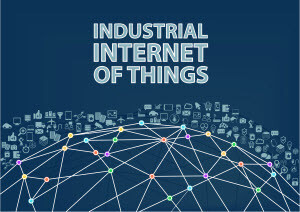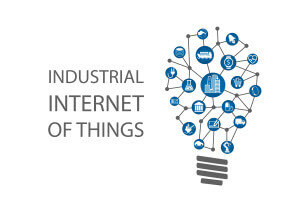The Industrial Internet of Things (IIoT) Promises Change on the Horizon for the Industrial Sector
The Industrial Internet of Things (IIoT) is a rising trend and is the use of Internet of Things (IoT) technologies in manufacturing. In the manufacturing industry, it’s important to understand how this idea works.
 According to the Internet of Things Agenda, “IIoT incorporates machine learning and big data technology, harnessing the sensor data, machine-to-machine communication and automation technologies that have existed in industrial settings for years. The driving philosophy behind the IIoT is that smart machines are better than humans at accurately, consistently capturing and communicating data.”
According to the Internet of Things Agenda, “IIoT incorporates machine learning and big data technology, harnessing the sensor data, machine-to-machine communication and automation technologies that have existed in industrial settings for years. The driving philosophy behind the IIoT is that smart machines are better than humans at accurately, consistently capturing and communicating data.”
Learn more about the IIoT and what it can mean for process manufacturing.
What Benefits Come from Industrial Internet of Things?
As IIoT is becoming more popular and industry experts are continuing to discuss its importance, opportunities are growing. Manufacturers are utilizing IIoT to identify the ways that their processes are inefficient and turning them into more beneficial practices.
Learn more about these benefits and how manufacturers are using them to improve their businesses.
Improving Profitability for Manufacturers
According to Plant Engineering , “IIoT can deliver improved traceability for better supply chain efficiency, which brings about faster production and lower costs.” This kind of technology captures and communicates data more efficiently in order for the manufacturer to better analyze their own operations.
, “IIoT can deliver improved traceability for better supply chain efficiency, which brings about faster production and lower costs.” This kind of technology captures and communicates data more efficiently in order for the manufacturer to better analyze their own operations.
Utilizing the connected devices and dynamic QR codes from IIoT also allows manufacturers to improve their customer service. Because of the efficiency of information and data transfer, operators can solve problems more efficiently.
Profits tend to increase as the IIoT helps manufacturers become focused on providing customer satisfaction. They have the flexibility required to meet customer needs and generate new business opportunities.
Benefits Differ Between End Users and OEMs
Manufacturers aren’t the only ones who reap benefits from IIoT. End users can utilize the information and operation technology to incorporate smart machines, generating a smart factory. Plant Engineering details, “With these changes, there is an opportunity to provide a connection point that delivers a holistic view of operations from the shop floor to the top floor.”
However, OEMs are looking to improve the performance of the machines in order to keep up with the production status and demands within the plant. They’re also looking to improve the maintenance and safety throughout the plant, so they must take advantage of the opportunities that the IIoT provides.
Understanding Process Manufacturing
In a Plant Engineering article, Andy Chatha, president of ARC Advisory Group, noted that manufacturing innovation is being driven by new technologies such as IIoT. He states, “IIoT connects previously stranded data from smart sensors, equipment, and other industrial assets with predictive analytics and other advanced applications running both in-plant on edge computer devices and remotely in the cloud.”
IIoT could be driving a transformation in manufacturing. Utilizing computing devices both remotely and in the cloud gives manufacturers the opportunity to connect with data that has been stranded. Manufacturers should be learning all they can about IIoT and find out how it can help them run their plants more effectively and to be more profitable.
Click here to contact CPV Manufacturing for information about high-quality valves and fittings.

